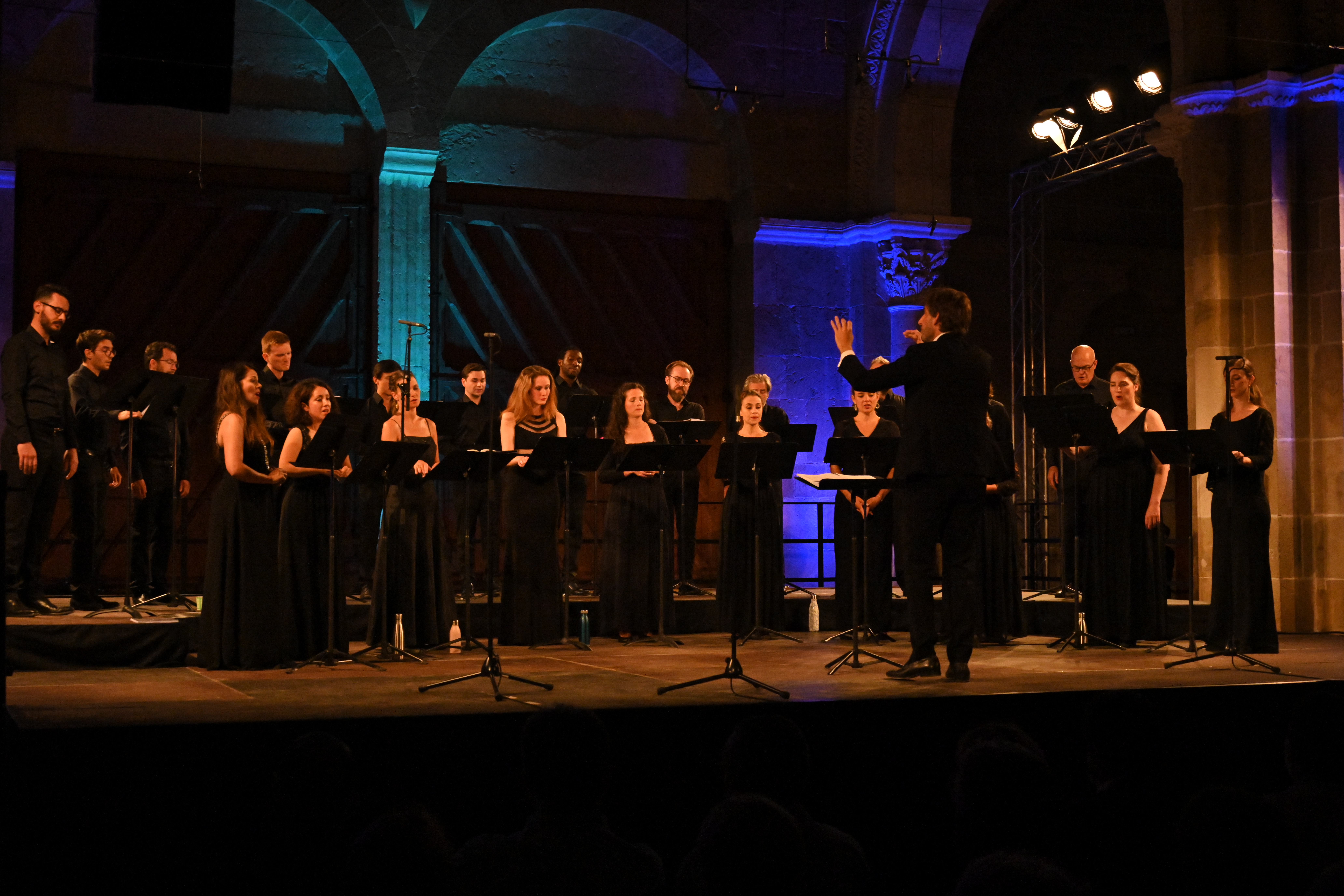It is with the world premiere of the transcription of the Pavane pour une infante defunte for choir for four mixed voices by Thibault Perrine, on the sublime poem Belle qui tient ma vie by Thoinot Arbeau, that tonight's concert begins, in the sumptuous Basilica of Vézelay. The direction of Léo Warynski gets rid of everything superfluous, suggesting by its flexible and round gestures the sonorous material of the choir, itself very round, mellow. In the generous acoustics of the basilica, the pronunciation of the texts and the precision of the attacks seem at first to suffer from this priority search for the beauty of the sound. Gradually, as the artists of the choir gain confidence, these slight flaws diminish. At several times, the listener is caught up in delicious harmonies colored with great care, such as the piano nuance offered on "Que l’amour qui m’époint décroisse d’un seul point ". The listener is transported by the obviously magical colors of Le Jardin Féérique, whose overall dynamics are thought out in a progressive manner until the final note, powerful but by no means overwhelming. The counter-d by soprano Anne-Claire Baconnais has the rare (even incredible for such pitches) quality of leading, sure and fine, towards the cadential (concluding) part. The ethereal pianissimo of "Toi, le coeur de la rose" from L’Enfant et les Sortilèges, hypnotizes. The colors that are offered are like pastel with watercolor effect, light and transparent, but in such an intense performance that one of the sopranos falls for it. The fear over (and the fall being in fact due to an indisposition), Amandine Trenc will return some time later, joining the ensemble while remaining seated to ensure her part, particularly important for "Le flûte enchantée", transcription of Scheherazade. Despite her great fatigue, the singer gives out a crystalline voice, light and agile like a flute. For the Trois chansons for a cappella choir, the music and texts of which are by Ravel's own hand, the soprano Lorraine Tisserand acts as a soloist on Trois beaux oiseaux de paradis on a beautiful choir mat and some echoes, making a voice heard. bright and very tender.
As a final, Les Métaboles offers a world premiere of the transcription of the Boléro for 16 mixed voices by Thibault Perrine. The choice leaves first of all questionable as to the possibility of transcribing for voice only a work of which all the flavor is the instrumentation. Admittedly, the rhythmic ostinato (repeated figure) at first appears a little irregular, but it nevertheless gains in confidence as the work progresses. The end of the second melodic phrase is however still too low in the registers to sound well and the endurance necessary for this long work sometimes gives rise to fear of a noticeable drop in accuracy. However, Les Métaboles values the work of transcription, still succeeding in reconstituting certain instrument timbres, such as the horn "wah wah" by the tenors, also completed by body percussion. The rich harmonies, with octaves and fifths, work very well thanks to the female voices, whose parts are almost individual. The masterful ending, with a collective kick, snatches the bravi and ovation from an enthusiastic audience. Although they enjoyed Le Jardin Féérique as an encore, which was the subject of a clip during the first confinement, the public asked for the Bolero again. Léo Warynski gives in and gives the last fifth of the work, with a little rushed tempo and an ostinato probably tired, but not lacking in shared enthusiasm!
Photo : François Zuidberg
